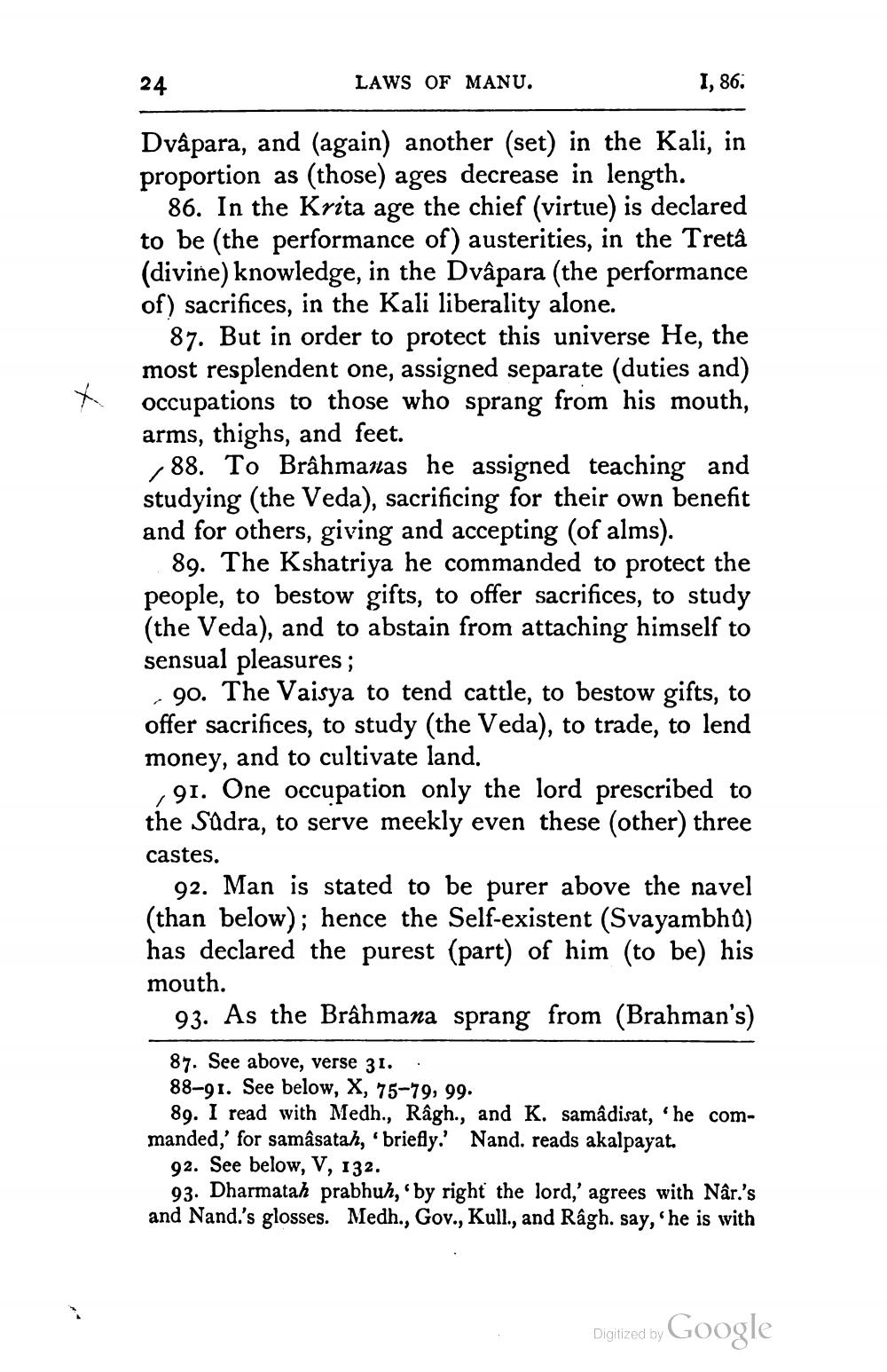________________
24
LAWS OF MANU.
1, 86.
Dvâpara, and (again) another (set) in the Kali, in proportion as (those) ages decrease in length.
86. In the Krita age the chief (virtue) is declared to be (the performance of) austerities, in the Tretà (divine) knowledge, in the Dvâpara (the performance of) sacrifices, in the Kali liberality alone.
87. But in order to protect this universe He, the most resplendent one, assigned separate (duties and) occupations to those who sprang from his mouth, arms, thighs, and feet. ,88. To Brâhmanas he assigned teaching and studying (the Veda), sacrificing for their own benefit and for others, giving and accepting (of alms).
89. The Kshatriya he commanded to protect the people, to bestow gifts, to offer sacrifices, to study (the Veda), and to abstain from attaching himself to sensual pleasures;
90. The Vaisya to tend cattle, to bestow gifts, to offer sacrifices, to study (the Veda), to trade, to lend money, and to cultivate land.
91. One occupation only the lord prescribed to the Sadra, to serve meekly even these (other) three castes.
92. Man is stated to be purer above the navel (than below); hence the Self-existent (Svayambha) has declared the purest (part) of him (to be) his mouth.
93. As the Brâhmana sprang from (Brahman's)
87. See above, verse 31.. 88-91. See below, X, 75-79, 99.
89. I read with Medh., Râgh., and K. samâdisat, 'he commanded,' for samâsatah, 'briefly. Nand. reads akalpayat.
92. See below, V, 132.
93. Dharmatah prabhuh, by right the lord,' agrees with Nâr.'s and Nand.'s glosses. Medh., Gov., Kull., and Ragh. say, he is with
Digitized by Google




